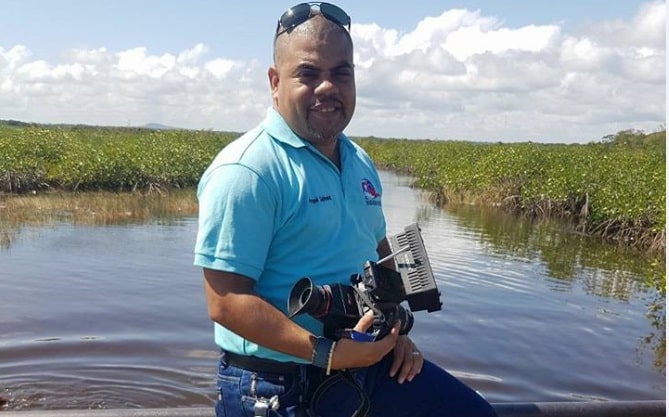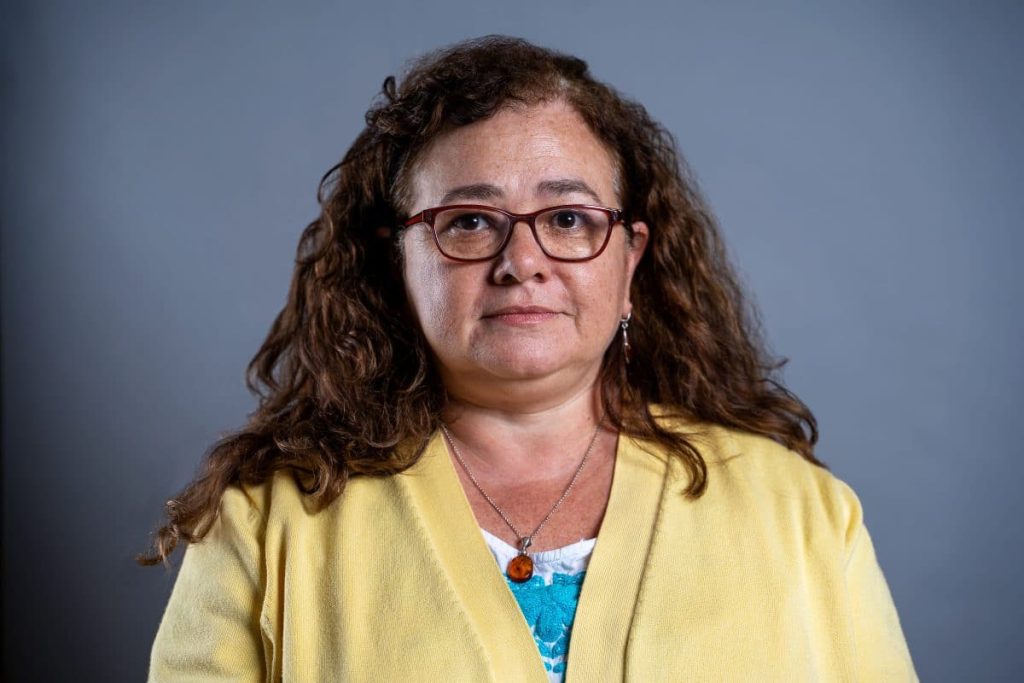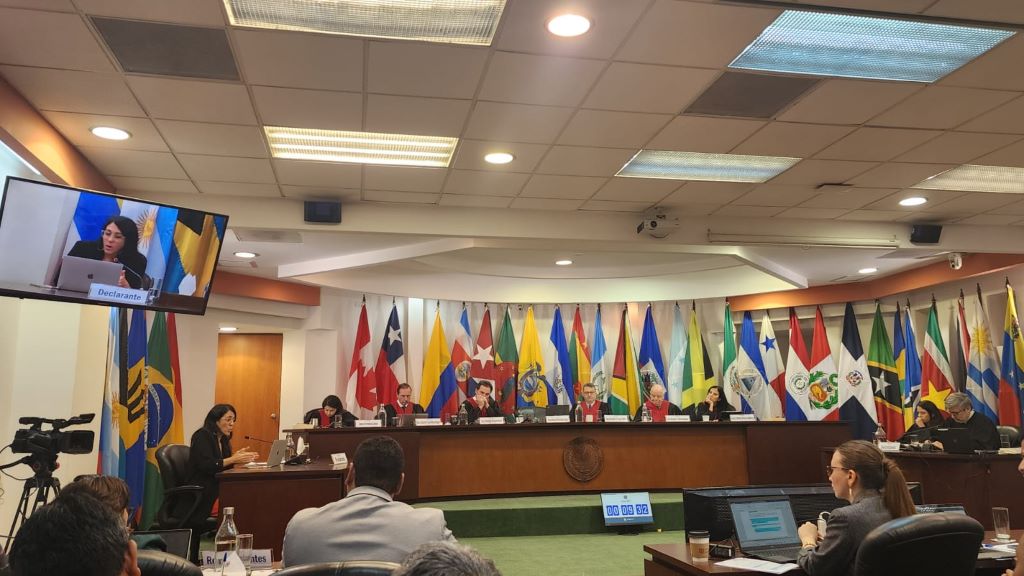15 de octubre 2024

Children of Exile: The Births “Sowing Hope” in the Camp of Nicaraguan Farmers

PUBLICIDAD 1M
PUBLICIDAD 4D
PUBLICIDAD 5D
*Claudia Paz y Paz, director of the CEJIL: “It's restorative that the highest court in the Americas is telling the truth” about this assassination

Ángel Gahona, journalist murdered in Bluefields in 2018.
Between October 2023 and July 2024, the number of legal actions against the State of Nicaragua that are before the Inter-American Court of Human Rights (IACHR), based in Costa Rica, increased from three to nine cases on behalf of petitioners who were denied justice in Nicaragua.
The cases include a lawsuit for the femicide of Dina Carrión that occurred in 2010; a claim against the unconstitutional reelection of Daniel Ortega in 2011, filed by former presidential candidate Fabio Gadea; the case of Indigenous peoples against the canal concession in 2014; the death in the La Modelo prison in 2021 of Santos Flores, who had been imprisoned and tortured since 2013 after having denounced Daniel Ortega's sexual abuse of Flores' underage sister; and the murder of journalist Angel Gahona by state agents in Bluefields on April 21, 2018, and which remains unpunished.
Attorney Claudia Paz y Paz, the former Attorney General of Guatemala and former member of the Interdisciplinary Group of Independent Experts of the Inter-American Court, is currently director of the Center for Justice and International Law (CEJIL). She says that the Commission and the Court are prioritizing cases from Nicaragua, highlighting the fact that the case of journalist Angel Gahona, is the first case before the Inter-American Court to address a death by state repression in April 2018.
In an interview with Esta Semana and CONFIDENCIAL, Paz y Paz stressed the importance of the highest court in the Americas determining “the truth” about this murder and other human rights violations by the State. “For the highest court in the Americas to say, 'Nicaragua violated human rights, state actors shot to kill,' is very restorative for the victims,” Paz y Paz said.
Paz y Paz also pointed out the potential transcendence of this case for all victims of repression in their demands for justice. “When the Inter-American Court rules, it establishes certain standards that can be used in subsequent cases, which are coming soon. Several significant cases are coming,” she explained. “Each ruling is important and should also be a source of great pride for the Gahona family. It is like a legacy of rights for all Nicaraguans.”
There are nine lawsuits before the Inter-American Court of Justice against Daniel Ortega's regime and against the State of Nicaragua to determine its responsibility for violating the right to life, judicial guarantees, freedom of expression, freedom of association, political rights, and protection of victims. These cases were initiated in the Inter-American Commission on Human Rights in 2008, 2011, 2012, and 2014, and now there is another one, that of the journalist Angel Gahona, assassinated in 2018, a crime that remains unpunished to this day. Why does the Inter-American Justice process take so long?
Claudia Paz y Paz: The Inter-American Commission is the first to receive a case. An individual or an organization wishing to file a petition before the Inter-American system has to submit it to the Commission. The number of cases filed with the Commission has caused a significant backlog. For example, the Commission receives between 2,000 and 3,000 cases each year, while the Court will only hear 20 to 35 cases.
There is a significant bottleneck, although with Nicaragua the processing is much faster. The fact that the Gahona case is already in the Court is a record, and it is because the Commission has prioritized these cases. But it's also because the Nicaraguan State doesn't respond, so there is no controversy. The Commission doesn't have to wait or give the State time to comply with its recommendations. The case goes immediately, or almost immediately to the Court.

So all these cases have already exhausted their process in the Commission. What is the difference between the conclusions or recommendations of the Commission and the Court?
The petitions must be presented to the Commission. The Commission then notifies the State and declares the admissibility of the case if the requirements established by the Convention are met. Then a merits report is issued, which is where the Commission establishes the facts. It establishes what rights were violated and they hand down a ruling against the State.
In the cases you mentioned, the Commission had already condemned the Nicaraguan State. What the Commission then does is issue a series of recommendations, both in terms of individual reparations and more structural issues. For example, in cases of assassinations, they recommend that the facts be properly investigated, and reparations be made to the victims, including the restoration of their dignity. If the State does not comply with these recommendations within a reasonable period of time, the Commission concludes its process and sends the case to the Court.
In the case of journalist Angel Gahona, who was murdered in 2018, the trial conducted by the State has already been dismissed, with the Commission concluding its part and the Court accepting the case. Gahona's assassination was an extrajudicial execution. Now the case is submitted to the Court so that it can issue a ruling. Once a case like this reaches the Court, what expectations of justice can Nicaraguan society, journalists, and the relatives of Angel Gahona have?
If the Commission affirms there was a human rights violation and makes recommendations, then the Court's rulings are absolutely binding. What is so important for the victims in general, and in this case in particular, is that the Court establishes the truth of the facts.
In the case of Gahona's murder, the [government] carried out a simulation [of a legal process]. Some boys were detained. However, the Expert Group determined that they could not have been the ones who shot at Gahona because of the distance, and the angle. So it is very important for the family that the truth be told, that this is the truth and their human rights have been violated. But it's also clear that because of the conditions in Nicaragua, we are going to have to wait for the regime to change for the ruling to begin to be implemented. If they [the regime] do not comply, the Court, as it has done on other occasions with provisional measures, can also inform the OAS, although unfortunately, Nicaragua is no longer a member of the OAS.
Can this case open the doors to other victims of the repression of 2018, other victims of murder, torture, and other types of crimes, to access justice in the Inter-American Court?
Yes. It's definitely the first case to come before the Court. But when the Court rules, it establishes certain standards that can be used in subsequent cases, which are coming soon. Several significant cases are coming.
There are rulings against Nicaragua that have established these standards. For example, the [Maria Luisa] Acosta case, which involves a human rights defender, established standards regarding the protection of human rights defenders. In the Yatama case, standards were also set regarding indigenous peoples and political participation. These cases establish standards for other Nicaraguan cases, but also for other cases in the Inter-American System.
There is another case, that of Santos Flores, a prisoner who died in the Modelo prison in 2021 after suffering torture. He was imprisoned because in 2013 he and his family denounced Daniel Ortega for abusing Flores' sister when she was a minor. Flores ended up in prison for eight years in inhumane conditions, which is what finally caused his death. Should the Court's ruling focus on the State or on the person who caused Flores' imprisonment?
The State is violating international law in the American Convention. The Court affirms that the State of Nicaragua has violated human rights in these articles and that these are the facts that occurred and orders the State to take certain measures.
So it is not about individual responsibility, although a complementary case could be made. What has happened in many other cases –for example, in Guatemala–, the Court has ordered the cases to be investigated and justice in the national system has been achieved.
On the basis of the Court's order, those responsible for serious human rights violations [such as] forced disappearances have been convicted in the country because of the push provided by the Court's ruling. But the Court does not establish individual responsibility.
Another very important issue for the Nicaraguan cases is that in other rulings, in cases after April 2018, the Court has said that there are crimes against humanity. So if that is the argument presented by the petitioners, it is possible that the Court will affirm it again and this would promote not only justice in Nicaragua, but also universal justice, which is a consequence of some facts being classified as crimes against humanity.

Can the State of Nicaragua disassociate itself from its responsibility by alleging that Nicaragua ceased to belong to the OAS in November 2023? Does this give it any justification to say that it has nothing to do with what the Inter-American Court of Human Rights says in its ruling?
No. Even in the most recent resolutions, the Court has recalled that it is bound by the American Convention on Human Rights. The OAS Charter is a legal instrument of the State of Nicaragua. In other words, even if I do not want to be in the OAS, I am still bound by the American Convention. I would have to denounce the American Convention to no longer be bound.
But the facts that occurred or are occurring to this day, while [Nicaragua] is still part of the American Convention, it continues to be within the jurisdiction of the Commission and the Court. That is to say, it would not be enough to denounce the Convention, because there would be no retroactive application. Cases could continue to be heard from 2018, 2019, 2020, 2021, 2022 ... right up to the present day.
What is the significance of a ruling of the Inter-American Court against a delinquent State, which has not even appeared in the trials, nor will it participate in the proceedings that will surely be opened against it in all these cases?
It's very significant for the victims, for the families of a person who has been executed, disappeared or tortured. For the torture survivor herself, it is very important to be heard, to have the truth of what happened be told and to have it said that it was wrong, that the State violated human rights. Because the truth is always a field in dispute. So, for the highest court in the Americas to say, "Nicaragua violated human rights, state actors shot to kill," is very restorative for the victims.
We also have to think that time goes on. Ortega and Murillo will not remain in power forever. When another government comes in, it will surely begin to comply with all the orders that the Court has already issued in these rulings.
The rulings also provide a very strong argument of legitimacy for other actors in the international community, such as international banks and governments. It's not just that the victims, the relatives, the human rights organizations, the journalists are saying it. Now Nicaragua has been convicted [in an international court] of having violated human rights. For example, you can't give Nicaragua a loan, you have to change your international relations with this country. So yes, it is very significant.
The only international justice body that the State of Nicaragua under Daniel Ortega's dictatorship has recognized as legitimate has been the International Court of Justice in The Hague. Nicaragua is not part of the International Criminal Court, but it does recognize the International Court of Justice. Could a sentence of the Inter-American Court have any kind of resonance in other international bodies?
Yes it could, of course it could. It could even be used by other States, if they argue during the case, for example, saying 'The Court has said that there are crimes against humanity here,' for example, or that 'Nicaragua has violated human rights.'
Another very important role these rulings can play is that when the reconstruction of the rule of law begins in Nicaragua, the Court will have established a political-legal route of reparations that need to be implemented, of structural changes and transformation of the justice system, the Public Prosecutor's Office and the Police, to guarantee that these events will never happen again.
Each ruling that is handed down –and this should also be a source of great pride for the Angel Gahona family– is like a legacy of rights for all Nicaraguans, because [Nicaragua] will not be starting from zero when the rule of law begins to be rebuilt. It will have a guide that the Court will be providing in each of its rulings.
This article was published in Spanish in Confidencial and translated by our staff. To get the most relevant news from our English coverage delivered straight to your inbox, subscribe to The Dispatch.
PUBLICIDAD 3M
Periodista nicaragüense, exiliado en Costa Rica. Fundador y director de Confidencial y Esta Semana. Miembro del Consejo Rector de la Fundación Gabo. Ha sido Knight Fellow en la Universidad de Stanford (1997-1998) y profesor visitante en la Maestría de Periodismo de la Universidad de Berkeley, California (1998-1999). En mayo 2009, obtuvo el Premio a la Libertad de Expresión en Iberoamérica, de Casa América Cataluña (España). En octubre de 2010 recibió el Premio Maria Moors Cabot de la Escuela de Periodismo de la Universidad de Columbia en Nueva York. En 2021 obtuvo el Premio Ortega y Gasset por su trayectoria periodística.
PUBLICIDAD 3D